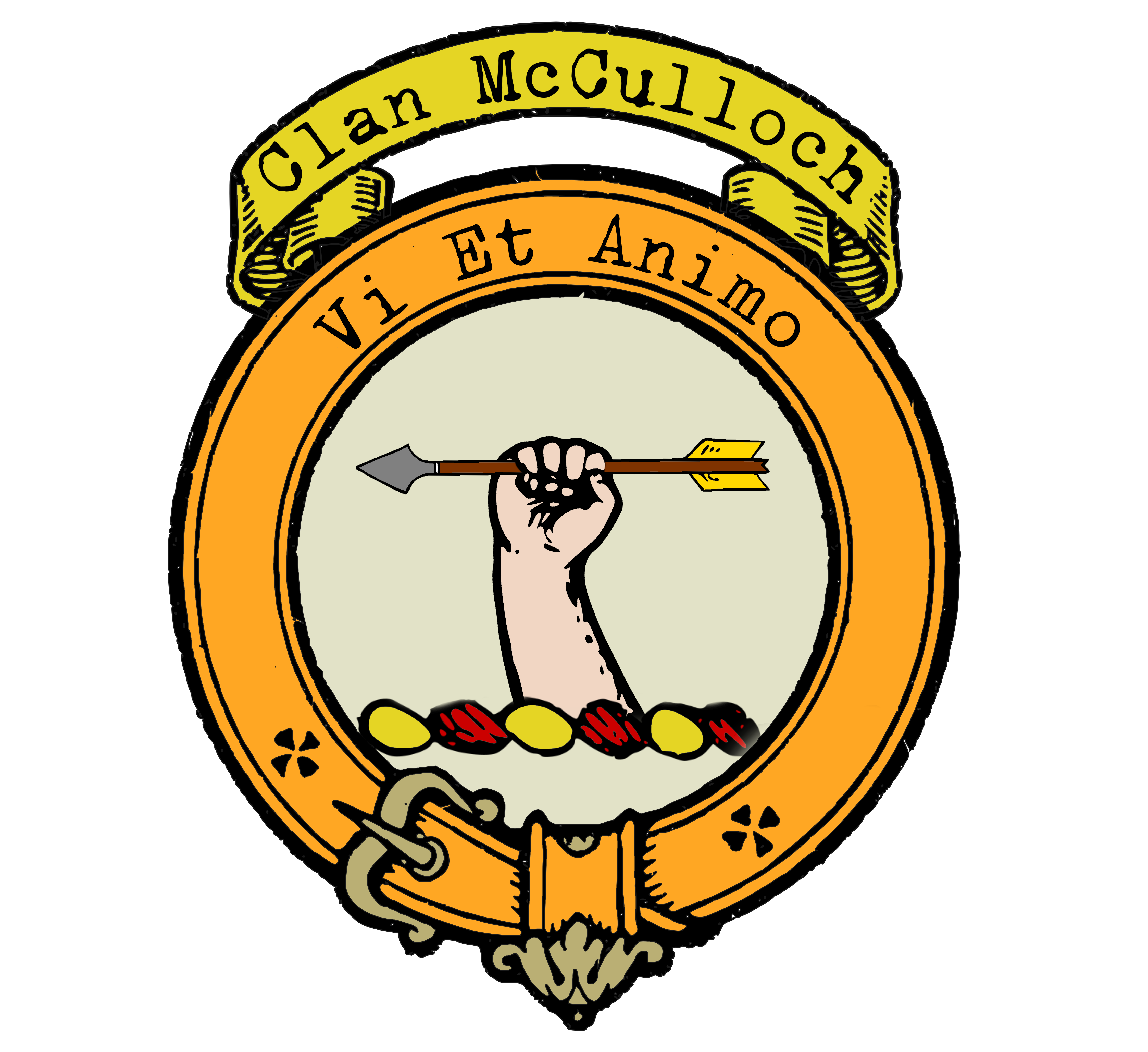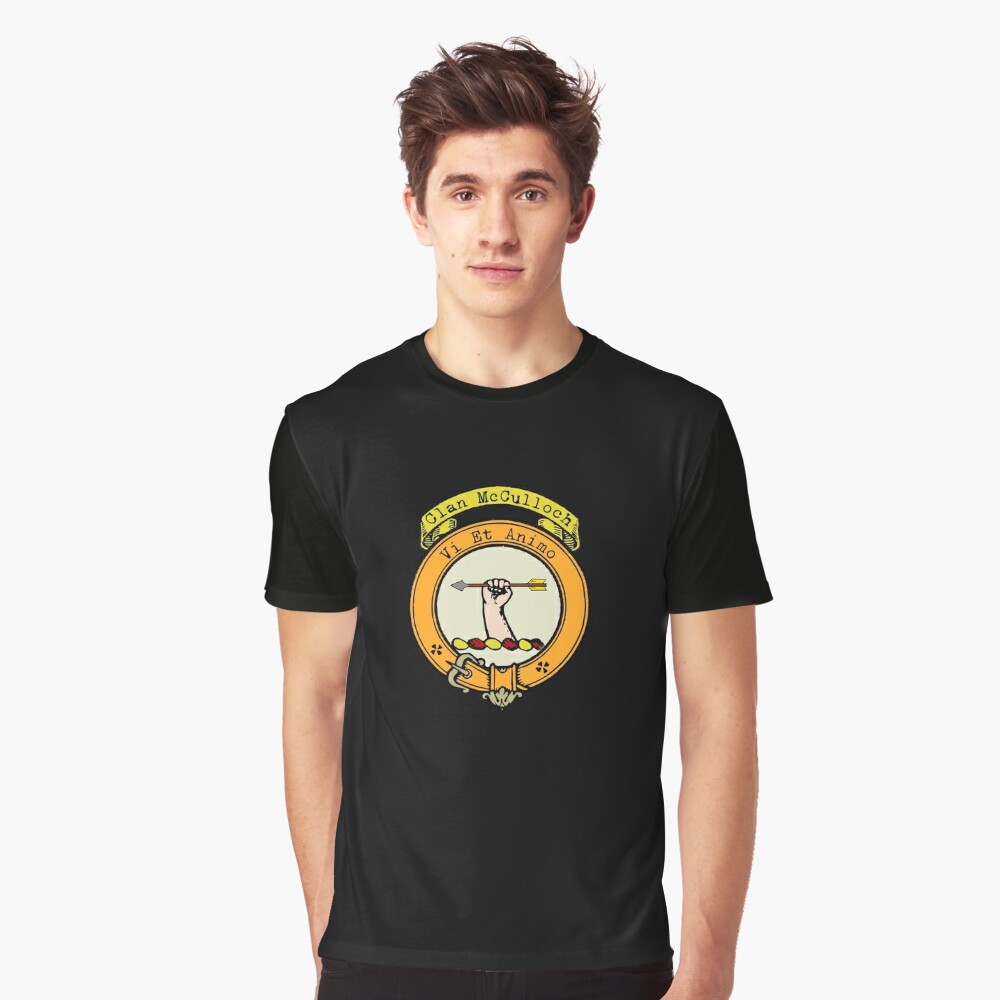Clan McCulloch
|
|
CREST: A hand throwing a dart Proper MOTTO: Vi et animo TRANSLATION: By strength and courage VARIATIONS: N/A |
| The name “McCulloch” is of Celtic origin, rooted in the rugged landscapes of Scotland. Like many ancient names, the exact derivation is subject to interpretation, but its essence remains consistent – strength, resilience, and a fierce spirit. The clan is primarily associated with regions such as Galloway, Wigtownshire, and even the northerly outpost of Oban.
In Gaelic, the name takes on different forms, reflecting the clan’s historical presence. The Irish Gaelic “MacCu’uladh,” suggesting “son of the Hound of Ulster,” resonates with a sense of power and endurance. This anglicizes to “Maccullagh.” In Scots Gaelic, “Maccullaich” emerges, translated as “son of the boar,” symbolizing tenacity and vigor. These variations may be strikingly different, yet they all echo a shared attribute of the clan’s ancestors – an unwavering strength. The McCulloch clan’s history is punctuated by significant individuals who left their mark on Scotland’s story. Lulach, son of Gilla Comgan, the Celtic Mormaer or Earl of Moray, is said to be the progenitor of the Argyllshire McCullochs. This connection to a prominent historical figure highlights the clan’s enduring importance. The clan’s influence extended to positions of authority, including the sheriff of Wigtown. Thomas Maculagh, Counte de Wyggtone, pledged homage to Edward I of England in 1296, becoming a figure of historical note. McCullochs continued to bear witness to charters, signifying their involvement in the affairs of their time. The McCulloch clan’s journey was not without its trials. The family experienced conflicts, both within the clan and with neighboring families. Notably, the Agnews of Lochnaw assumed the role of sheriff of Wigtown, which had once been held by the McCullochs. The clan’s retaliatory actions, such as the raid on the Isle of Man in 1507, reveal their determination to defend their interests. The McCullochs also experienced the rise and fall of nobility. From acquiring lands and forming baronies to receiving the prestigious title of baronet in 1634, the clan’s ascent was impressive. However, this title met a tragic end when Sir Godfrey McCulloch was executed in 1697 for murder. This event echoed through history, capturing attention in Pitcairn’s Criminal Trials of Scotland. As with many clans, the McCulloch clan’s legacy continues through descendants and prominent figures. Major General Sir Andrew McCulloch of Ardwall embodied the clan’s valor, serving in both the Boer War and the First World War. His multiple Distinguished Service Order awards and role as aide-de-camp to George V underscore the clan’s enduring commitment to service and honor. |
|
Citations:
|
|

Purchase @ Redbubble
Purchase @ Amazon.com
Purchase @ Amazon.co.uk

